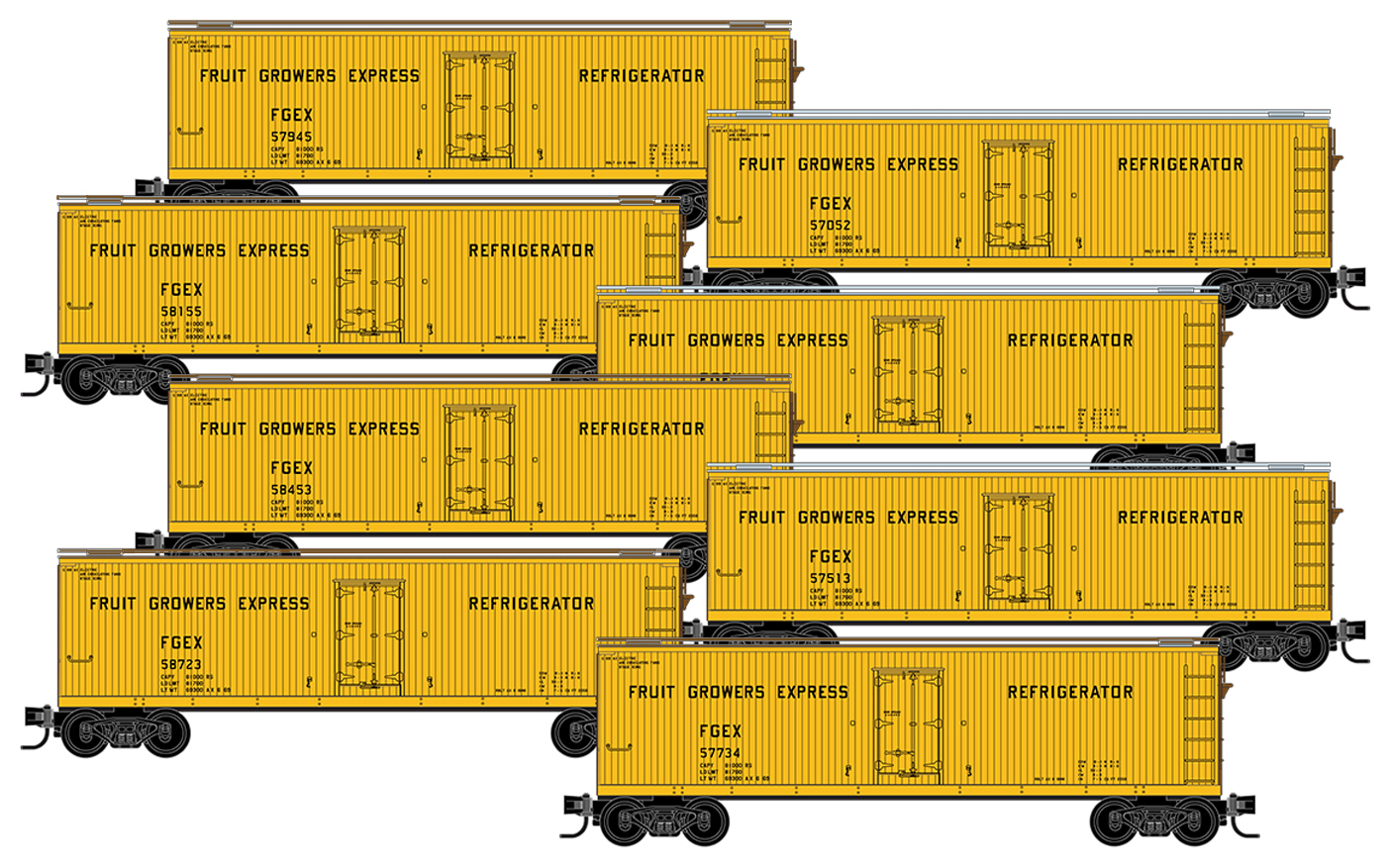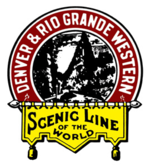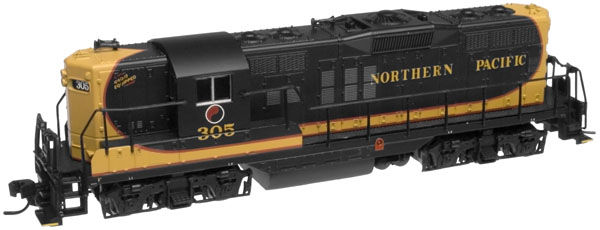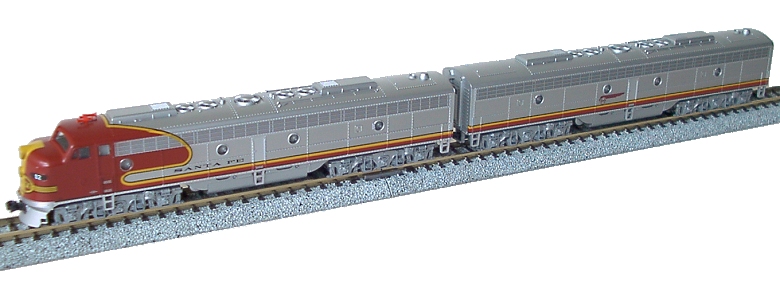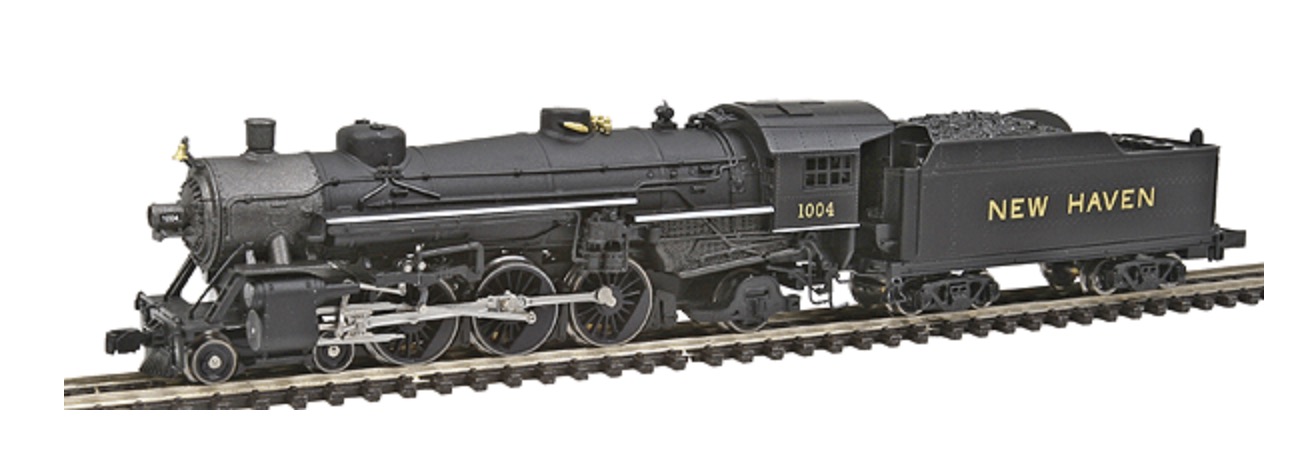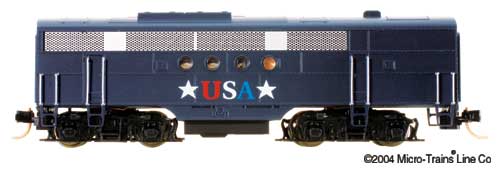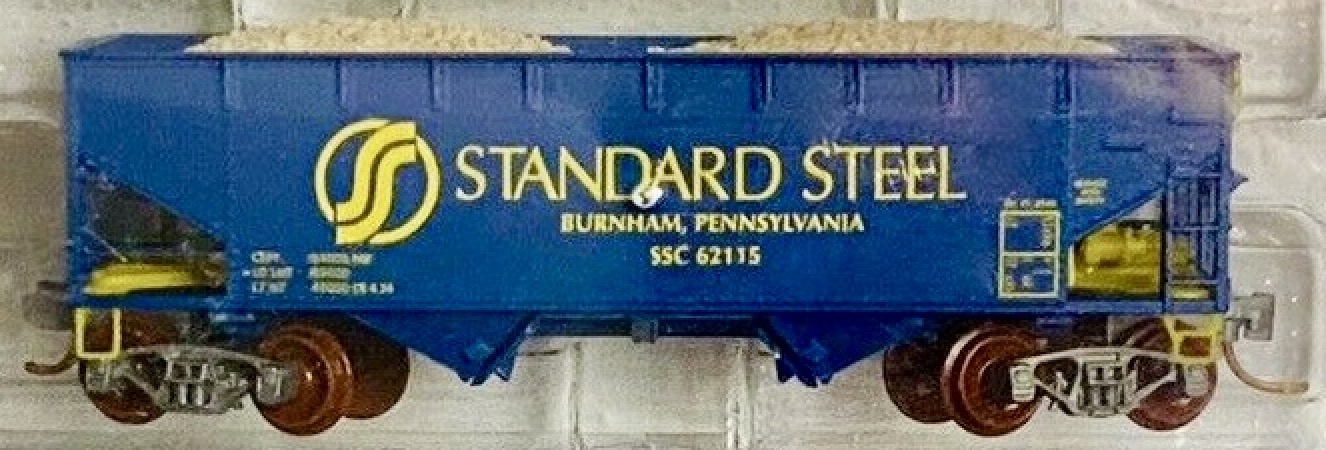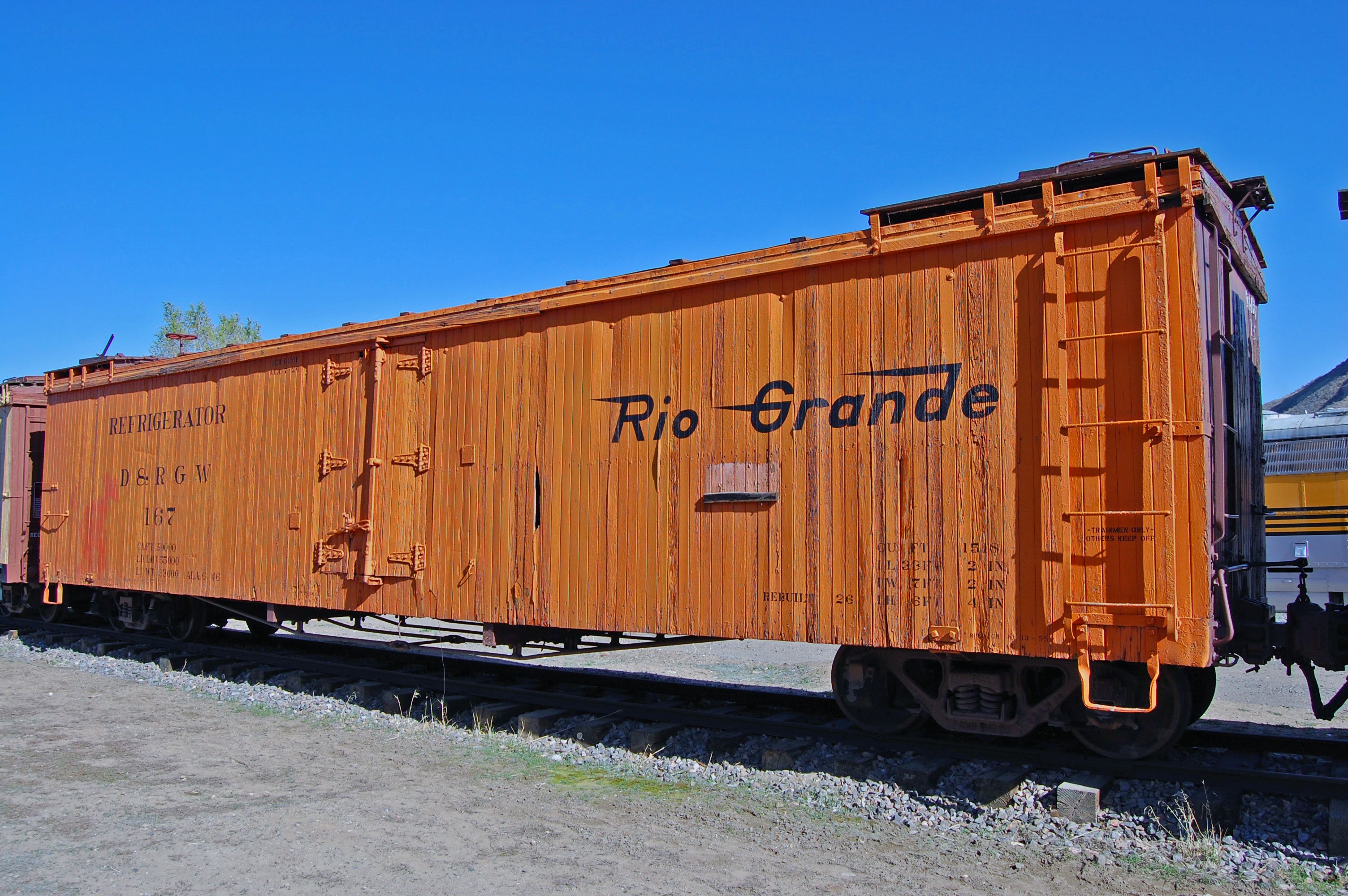Specific Item Information: FGE 'Clean' 8-pack Road #'s 57052, 57178, 57513, 57734, 57945, 58155, 58453, 58723.
These Fruit Growers Express wood-side reefer cars with Bettendorf trucks were rebuilt in 1948 and had air circulating fans added, and rebuilt and repainted again in 1969. Fruit Growers Express was founded in 1920 as a produce-shipping subsidiary of Armour & Company, a large meat packing company based in Chicago. Primarily focused on the eastern United States, FGE quickly grew to be a main competitor to Pacific Fruit Express and other large refrigerator car companies. FGE is now owned by CSX Corporation.
These Fruit Growers Express wood-side reefer cars with Bettendorf trucks were rebuilt in 1948 and had air circulating fans added, and rebuilt and repainted again in 1969. Fruit Growers Express was founded in 1920 as a produce-shipping subsidiary of Armour & Company, a large meat packing company based in Chicago. Primarily focused on the eastern United States, FGE quickly grew to be a main competitor to Pacific Fruit Express and other large refrigerator car companies. FGE is now owned by CSX Corporation.
Model Information: Micro-Trains introduced this body style in July of 1982. It features opening roof hatches - an innovation for N Scale at the time. The detail of the body combined with the high quality printing makes this tooling an excellent choice for modeling early-20th century billboard reefers. It is particularly well suited for modeling the cars used by pre-war meat packers. The prototype is a 40 Foot Wood-Sheathed Ice Reefer with vertical brake wheel (the wheel itself is horizontal).
Prototype History: In 1924 and 1926, the D&RGW shops in Alamosa built one last class of refrigerator cars, still made mostly of wood: twenty "long" reefers, with a length of 40ft and a capacity of 25 tons (#150 to 169). They rode on Andrews trucks and were designed to have the same capacity as a small standard gauge refrigerator car, to facilitate transhipments at the gauge changing points. In 1967, 12 of these refrigerator cars were still active on the Rio Grande. Today, four long reefers are conserved on the Cumbres & Toltec Scenic Railroad (#157, 163, 166 and 169), two at the Colorado Railroad Museum (#159 and 167), one on the Georgetown Loop Railroad (#153) and #168 is part of the Sumpter Valley Railway collection.
Road Name History:  Fruit Growers Express (FGE) was a railroad refrigerator car leasing company that began as a produce-hauling subsidiary of Armour and Company's private refrigerator car line. Its customers complained they were overcharged. In 1919 the Federal Trade Commission ordered the company's sale for anti-trust reasons. The company is now controlled by the CSX Corporation.
Fruit Growers Express (FGE) was a railroad refrigerator car leasing company that began as a produce-hauling subsidiary of Armour and Company's private refrigerator car line. Its customers complained they were overcharged. In 1919 the Federal Trade Commission ordered the company's sale for anti-trust reasons. The company is now controlled by the CSX Corporation.
Incorporated on March 18, 1920 the firm took possession of 4,280 pieces of rolling stock, repairs shops at Alexandria, Virginia and Jacksonville, Florida, and numerous ice plants and other facilities scattered throughout the East Coast on May 1. By year's end, the Chicago and Eastern Illinois, New Haven, and Norfolk and Western railroads became major stockholders.
In order to compete with the Pacific Fruit Express and Santa Fe Refrigerator Despatch in the west, FGE and the Great Northern Railway formed the Western Fruit Express (WFE) on July 18, 1923, a move that added 3,000 cars to the equipment pool. By 1926, FGE had expanded its service into the Pacific Northwest and the Midwest through the WFE and the Burlington Refrigerator Express (BREX), its other partly owned subsidiary (formed in partnership with the Chicago, Burlington and Quincy Railroad (CB&Q) on May 1). That same year, FGE purchased 2,676 36-foot-long (11 m) reefers from the Pennsylvania Railroad.
In February, 1928 FGE formed the National Car Company as a subsidiary to service the meat transportation market. Customers included Kahns, Oscar Mayer, and Rath Packing.
From Wikipedia

Incorporated on March 18, 1920 the firm took possession of 4,280 pieces of rolling stock, repairs shops at Alexandria, Virginia and Jacksonville, Florida, and numerous ice plants and other facilities scattered throughout the East Coast on May 1. By year's end, the Chicago and Eastern Illinois, New Haven, and Norfolk and Western railroads became major stockholders.
In order to compete with the Pacific Fruit Express and Santa Fe Refrigerator Despatch in the west, FGE and the Great Northern Railway formed the Western Fruit Express (WFE) on July 18, 1923, a move that added 3,000 cars to the equipment pool. By 1926, FGE had expanded its service into the Pacific Northwest and the Midwest through the WFE and the Burlington Refrigerator Express (BREX), its other partly owned subsidiary (formed in partnership with the Chicago, Burlington and Quincy Railroad (CB&Q) on May 1). That same year, FGE purchased 2,676 36-foot-long (11 m) reefers from the Pennsylvania Railroad.
In February, 1928 FGE formed the National Car Company as a subsidiary to service the meat transportation market. Customers included Kahns, Oscar Mayer, and Rath Packing.
From Wikipedia
Brand/Importer Information: Micro-Trains is the brand name used by both Kadee Quality Products and Micro-Trains Line. For a history of the relationship between the brand and the two companies, please consult our Micro-Trains Collector's Guide.
Manufacturer Information:  Micro-Trains Line split off from Kadee Quality Products in 1990. Kadee Quality Products originally got involved in N-Scale by producing a scaled-down version of their successful HO Magne-Matic knuckle coupler system. This coupler was superior to the ubiquitous 'Rapido' style coupler due to two primary factors: superior realistic appearance and the ability to automatically uncouple when stopped over a magnet embedded in a section of track. The success of these couplers in N-Scale quickly translated to the production of trucks, wheels and in 1972 a release of ready-to-run box cars.
Micro-Trains Line split off from Kadee Quality Products in 1990. Kadee Quality Products originally got involved in N-Scale by producing a scaled-down version of their successful HO Magne-Matic knuckle coupler system. This coupler was superior to the ubiquitous 'Rapido' style coupler due to two primary factors: superior realistic appearance and the ability to automatically uncouple when stopped over a magnet embedded in a section of track. The success of these couplers in N-Scale quickly translated to the production of trucks, wheels and in 1972 a release of ready-to-run box cars.
Micro-Trains Line Co. split off from Kadee in 1990 to form a completely independent company. For this reason, products from this company can appear with labels from both enterprises. Due to the nature of production idiosyncrasies and various random factors, the rolling stock from Micro-Trains can have all sorts of interesting variations in both their packaging as well as the products themselves. When acquiring an MTL product it is very important to understand these important production variations that can greatly enhance (or decrease) the value of your purchase.
Please consult our Micro-Trains Collector's Guide

Micro-Trains Line Co. split off from Kadee in 1990 to form a completely independent company. For this reason, products from this company can appear with labels from both enterprises. Due to the nature of production idiosyncrasies and various random factors, the rolling stock from Micro-Trains can have all sorts of interesting variations in both their packaging as well as the products themselves. When acquiring an MTL product it is very important to understand these important production variations that can greatly enhance (or decrease) the value of your purchase.
Please consult our Micro-Trains Collector's Guide
Item created by: CMK on 2022-02-16 11:51:42. Last edited by CNW400 on 2022-02-24 22:20:10
If you see errors or missing data in this entry, please feel free to log in and edit it. Anyone with a Gmail account can log in instantly.
If you see errors or missing data in this entry, please feel free to log in and edit it. Anyone with a Gmail account can log in instantly.


